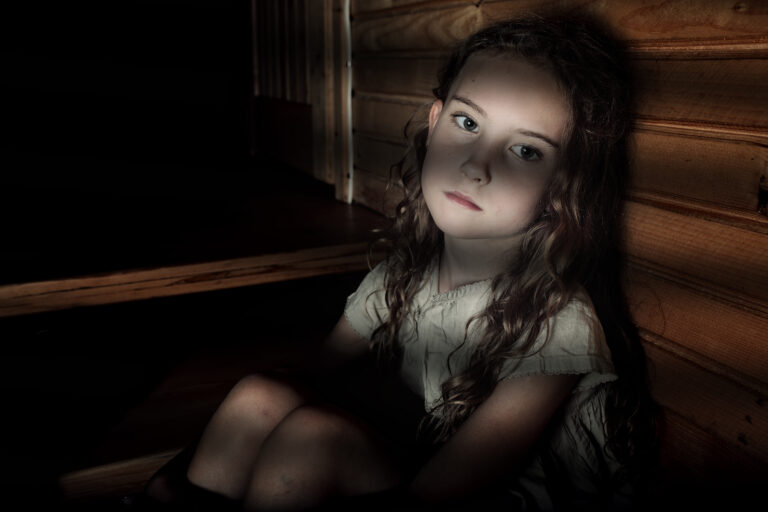At first glance, many of the behaviors we exhibit and the feelings we experience might seem completely normal. Whether it’s a need for validation, avoiding conflict, or feeling excessively anxious about failure, these reactions can appear to be just part of the human experience. However, what if some of these “normal” behaviors are actually signs of unresolved trauma lurking beneath the surface?
Trauma isn’t always about dramatic, life-changing events. Sometimes, it’s the accumulation of subtle, ongoing experiences that can leave deep emotional scars. For those experiencing trauma, these unresolved wounds often manifest in ways that we, or those around us, might dismiss as everyday quirks or personality traits. In this article, we’ll explore some of the common yet overlooked signs of unresolved trauma that might be influencing your life more than you realize. You can take the first steps toward understanding and healing from the past by identifying these hidden indicators.
How to recognize the signs?
Understanding how unresolved emotional trauma might be influencing your life is a crucial step toward healing. The signs aren’t always obvious, and many can easily be mistaken for normal reactions to stress, personality traits, or just the way you are. However, these seemingly “normal” behaviors may actually be your mind’s way of coping with past experiences that have never fully been addressed.
In the following list, we’ll explore 29 everyday behaviors and feelings that could be rooted in unresolved trauma. As you read through these, consider whether they resonate with your own experiences. Recognizing these patterns is the first step toward understanding their deeper origins and ultimately working toward healing.
1. Avoiding Challenges or New Opportunities

What Type of Trauma/Stress Creates This?Repeated criticism or rejection during childhood, like harsh parenting, bullying, or childhood sexual abuse.
Why Does This Happen?
The brain learns to see failure as a significant threat.
Scientific Insight: The amygdala, the brain’s threat detection center, becomes hyperactive, making the fear of failure feel overwhelming even in low-risk situations.
How Does This Impact Us Day to Day?
You might avoid trying new things or taking on challenges because the fear of failing to succeed feels too intense. Thiscan lead to missed opportunities and a sense of being stuck.
2. Struggling with Procrastination
What Type of Trauma/Stress Creates This?
Growing up with inconsistent caregiving or a lack of structure in the home.
Why Does This Happen?
The brain gets used to focusing on immediate rewards instead of long-term goals.
Scientific Insight: A disrupted balance between the limbic system (which seeks immediate pleasure) and the prefrontal cortex (responsible for planning) can lead to poor time management.
How Does This Impact Us Day to Day?
You might find yourself constantly putting off important tasks in favor of short-term pleasures like watching TV or scrolling through social media, which can lead to missed deadlines and stress.
3. Difficulty Setting and Sticking to Goals
What Type of Trauma/Stress Creates This?
Living in a chaotic environment during childhood, like frequently moving or having unstable caregivers.
Why Does This Happen?
The brain is more focused on survival than future planning.
Scientific Insight: The prefrontal cortex (PFC), crucial for goal-setting, may be underdeveloped or constantly overshadowed by survival instincts.
How Does This Impact Us Day to Day?
You may find it hard to plan for the future or stick to long-term goals, leaving you feeling aimless or unmotivated.
4. Giving Up Easily
What Type of Trauma/Stress Creates This?
Experiencing situations where you had no control, like being in an abusive relationship or severe bullying.
Why Does This Happen?
The brain learns that trying doesn’t lead to success, a concept known as learned helplessness.
Scientific Insight: Repeated failure or punishment leads to a belief that persistence is pointless, impacting motivation and potentially causing physical symptoms related to unresolved trauma.
How Does This Impact Us Day to Day?
You might abandon projects or goals at the first sign of difficulty, believing that nothing you do will make a difference.
5. Feeling Unmotivated

What Type of Trauma/Stress Creates This?
Prolonged exposure to stress or trauma, like living in poverty or experiencing neglect.
Why Does This Happen?
The brain’s reward system becomes less sensitive to things that should bring joy or satisfaction. Scientific Insight:Changes in dopamine regulation, the neurotransmitter responsible for motivation, can lead to anhedonia, where nothing feels rewarding.
How Does This Impact Us Day to Day?
You may struggle to find passion or drive in anything, leading to a lack of motivation to pursue goals or engage in activities you once enjoyed.
6. Having Poor Time Management
What Type of Trauma/Stress Creates This?
Growing up in a high-stress or chaotic environment, like a household with frequent conflicts.
Why Does This Happen?
The brain stays in survival mode, prioritizing immediate needs over planning.
Scientific Insight: The prefrontal cortex, crucial for executive functions like planning and organization, can be impaired, making time management difficult.
How Does This Impact Us Day to Day?
You might often find yourself overwhelmed by tasks and unable to organize your time effectively, leading to missed appointments and a chaotic daily routine.
7. Repeating the Same Mistakes
What Type of Trauma/Stress Creates This?
Being severely reprimanded or shamed for mistakes during childhood.
Why Does This Happen?
The brain associates mistakes with severe emotional pain, leading to avoidance of learning from them.
Scientific Insight: Trauma can inhibit the brain’s ability to process and learn from past experiences, particularly in the prefrontal cortex.
How Does This Impact Us Day to Day?
You may find yourself making the same mistakes over and over again because you haven’t processed the lessons from past failures.
8. Choosing the Wrong People to Be Around
What Type of Trauma/Stress Creates This?
Growing up in a toxic or dysfunctional social environment.
Why Does This Happen?
The brain normalizes negative behaviors and reinforces these patterns through social learning.
Scientific Insight: Mirror neurons, which help us learn from others, can solidify these harmful behaviors, making it hard to break free from toxic relationships.
How Does This Impact Us Day to Day?
You might find yourself in unhealthy relationships or friendships reinforcing negative behaviors or beliefs.
9. Struggling with Self-Discipline
What Type of Trauma/Stress Creates This?
Growing up in an environment where impulse control wasn’t taught or encouraged, like a home with substance abuse.
Why Does This Happen?
The brain’s impulse control centers may be underdeveloped.
Scientific Insight: The prefrontal cortex, which helps regulate impulses and plan for the future, might be impaired, making it hard to resist immediate gratification.
How Does This Impact Us Day to Day?
You might struggle with overspending, overeating, or other impulsive behaviors, finding it hard to stick to routines or long-term commitments.
10. Feeling Stuck in Life Due to Unresolved Trauma
What Type of Trauma/Stress Creates This?
Growing up in an environment where there were limited opportunities or constant discouragement can be a traumatic event, leading to unresolved trauma that affects individuals both physically and emotionally.
Why Does This Happen?
The brain may develop a fixed mindset, believing change is impossible or too difficult.
Scientific Insight: Chronic stress can lead to alterations in the brain’s neuroplasticity, making it harder to adapt to new situations or break out of old patterns.
How Does This Impact Us Day to Day?
You might feel trapped in your current situation, whether it’s a job, relationship, or lifestyle, and believe that there’s no way out, leading to feelings of frustration and hopelessness.
11. Experiencing Anxiety in Social Situations After Traumatic Events

What Type of Trauma/Stress Creates This?
Early experiences of social rejection, bullying, or harsh criticism.
Why Does This Happen?
The brain becomes hypervigilant in social situations, expecting adverse outcomes.
Scientific Insight: The amygdala, responsible for processing fear, can become overactive, making social interactions feel threatening.
How Does This Impact Us Day to Day?
You may avoid social gatherings, feel extreme discomfort in group settings, or constantly worry about how others perceive you, leading to social isolation or difficulty forming relationships.
12. Overworking or Perfectionism
What Type of Trauma/Stress Creates This?
Growing up with high expectations or conditional love, where achievements were tied to worth.
Why Does This Happen?
The brain learns to equate self-worth with productivity or perfection.
Scientific Insight: The reward system in the brain, involving dopamine, becomes conditioned only to release positive feelings when tasks are completed to a high standard, reinforcing perfectionistic behaviors.
How Does This Impact Us Day to Day?
You might push yourself too hard, striving for perfection in every aspect of your life, leading to burnout, stress, and a lack of satisfaction even after achieving your goals.
13. Feeling Disconnected from Others
What Type of Trauma/Stress Creates This?
Childhood experiences of emotional neglect or abandonment.
Why Does This Happen?
The brain may develop a defense mechanism to avoid emotional pain by distancing itself from others.
Scientific Insight: Disruptions in the brain’s attachment systems, like those involving oxytocin (the bonding hormone), can make forming close connections difficult.
How Does This Impact Us Day to Day?
You might struggle to feel close to others, even in relationships, leading to loneliness or difficulties in forming deep, meaningful connections.
14. Difficulty Trusting Others
What Type of Trauma/Stress Creates This?
Betrayal or abandonment in childhood, such as a parent leaving or experiencing untrustworthy caregivers.
Why Does This Happen?
The brain learns to see others as potential threats rather than allies.
Scientific Insight: The amygdala and prefrontal cortex may work together to heighten suspicion and reduce trust, impacting your ability to form healthy relationships.
How Does This Impact Us Day to Day?
You might find it hard to trust others, leading to relationship issues or a tendency to keep people at a distance, even when they’ve done nothing to harm you.
Related Reading: How to trust people again/ for the 1st time
15. Feeling Numb or Emotionally Detached

What Type of Trauma/Stress Creates This?
Prolonged exposure to a traumatic experience or stress, like childhood abuse or witnessing violence.
Why Does This Happen?
The brain may shut down emotional responses to protect itself from overwhelming pain.
Scientific Insight: Chronic stress can cause the brain’s limbic system, which is responsible for emotional regulation, to become less responsive, leading to emotional numbness.
How Does This Impact Us Day to Day?
You might feel disconnected from your own emotions, struggling to experience joy, sadness, or anger, which can lead to difficulties in relationships and a sense of emptiness.
16. Experiencing Frequent Mood Swings
What Type of Trauma/Stress Creates This?
Growing up in a volatile environment, like a household with substance abuse or mental illness.
Why Does This Happen?
The brain’s emotional regulation systems become unpredictable.
Scientific Insight: Imbalances in neurotransmitters like serotonin and dopamine can lead to unstable moods, where you swing from happiness to sadness or anger without clear reasons.
How Does This Impact Us Day to Day?
You might experience sudden shifts in mood that are difficult to control, impacting your relationships, work, and overall quality of life.
17. Being Overly Dependent on Others
What Type of Trauma/Stress Creates This?
Childhood experiences of overprotection or emotional enmeshment with caregivers.
Why Does This Happen?
The brain may not develop the independence needed to function on its own.
Scientific Insight: Insecure attachment styles, formed in early childhood, can lead to overreliance on others for emotional stability. Individuals dealing with unresolved trauma might encounter recurring physical and emotional challenges that mirror the same symptoms, even if they are engaged in therapy.
How Does This Impact Us Day to Day?
You might struggle to make decisions on your own or feel a constant need for validation and support from others, which can lead to unhealthy relationships and a lack of personal growth.
18. Difficulty Making Decisions
What Type of Trauma/Stress Creates This?
Growing up in an environment where choices were criticized or controlled by others.
Why Does This Happen?
The brain becomes overly cautious, fearing the consequences of making the wrong choice.
Scientific Insight: The prefrontal cortex, which is involved in decision-making, may be impacted by stress, leading to indecision or second-guessing.
How Does This Impact Us Day to Day?
You might struggle to make even simple decisions, constantly worrying about the outcomes or what others will think, leading to procrastination or missed opportunities.
19. Feeling Overwhelmed by Emotions
What Type of Trauma/Stress Creates This?
Trauma survivors experience intense or traumatic events without adequate emotional support, such as witnessing violence or surviving a disaster.
Why Does This Happen?
The brain’s emotional regulation systems may become overwhelmed, making it hard to process feelings.
Scientific Insight: The limbic system, particularly the amygdala, can become hypersensitive, leading to heightened emotional responses.
How Does This Impact Us Day to Day?
You might feel like your emotions are too intense to handle, leading to frequent crying, outbursts, or feeling out of control, which can impact your relationships and daily functioning.
20. Criticizing Yourself
What Type of Trauma/Stress Creates This?
Growing up with overly critical or unsupportive parents or experiencing harsh judgment from peers during childhood.
Why Does This Happen?
The brain internalizes the critical voices and negative feedback, leading to a persistent inner critic.
Scientific Insight: The prefrontal cortex (PFC), responsible for self-reflection and decision-making, can become overly focused on perceived flaws and mistakes, reinforcing a cycle of self-criticism.
How Does This Impact Us Day to Day?
You might constantly put yourself down, replay past mistakes in your head, and struggle to feel proud of your achievements, making it hard to feel good about yourself.
Related Reading: Learn how to love yourself
21. Never Feeling Good Enough

What Type of Trauma/Stress Creates This?
Experiencing neglect, emotional abuse, or growing up in an environment where love and acceptance were conditional.
Why Does This Happen?
The brain learns to associate self-worth with external validation and perfection.
Scientific Insight: The brain’s reward system, including the dopamine pathways, may become reliant on external approval, leading to feelings of inadequacy when that validation isn’t present.
How Does This Impact Us Day to Day?
You might constantly compare yourself to others, feel like you’re not measuring up, and struggle to accept compliments or believe in your own worth.
22. Struggling with Authority
What Type of Trauma/Stress Creates This?
Growing up in a household with overly strict, authoritarian parents or experiencing inconsistent or abusive authority figures.
Why Does This Happen?
The brain becomes conditioned to view authority figures as threats rather than guides.
Scientific Insight: The amygdala, responsible for threat detection, may become hyperactive around authority figures, triggering anxiety or defiance.
How Does This Impact Us Day to Day?
You might have trouble trusting or respecting authority figures, leading to conflicts at work or in other hierarchical situations, and you may feel anxious or rebellious in these settings.
23. Fear of Losing or Failing

What Type of Trauma/Stress Creates This?
Experiencing repeated criticism, failure, or high-pressure situations during childhood, especially without adequate support or encouragement.
Why Does This Happen?
The brain associates failure with danger, triggering avoidance behaviors.
Scientific Insight: The amygdala becomes sensitized to the idea of failure, interpreting it as a significant threat, which can lead to anxiety and avoidance.
How Does This Impact Us Day to Day?
You might avoid trying new things or taking risks, procrastinate on tasks, or feel paralyzed by the fear of not being perfect, which can hold you back from pursuing opportunities.
24. Getting Mad Too Easily
What Type of Trauma/Stress Creates This?
Growing up in a chaotic or aggressive environment, where anger was a common response or where emotions were not properly managed.
Why Does This Happen?
The brain learns to default to anger as a coping mechanism for stress or frustration.
Scientific Insight: The limbic system, especially the amygdala, may become overactive, leading to a quick trigger for anger and difficulty managing emotional responses.
How Does This Impact Us Day to Day?
You might frequently lose your temper over small things, argue with loved ones, or feel like your anger is out of control, which can strain relationships.
25. Avoiding Close Relationships
What Type of Trauma/Stress Creates This?
Experiencing abandonment, betrayal, or emotional neglect in early relationships, particularly with caregivers or significant others.
Why Does This Happen?
The brain protects itself by avoiding situations that could lead to further emotional pain.
Scientific Insight: The attachment system in the brain, including the hippocampus and amygdala, may become hypersensitive to potential rejection, leading to avoidance of intimacy.
How Does This Impact Us Day to Day?
You might keep people at a distance, struggle to open up emotionally or fear getting too close to others, leading to loneliness and difficulty maintaining deep, meaningful relationships.
26. Always Chasing the Next Big Win

What Type of Trauma/Stress Creates This?
Growing up in an environment where achievements were overly emphasized or used as the primary way to gain approval and love.
Why Does This Happen?
The brain equates success with worth, driving an endless pursuit of achievements.
Scientific Insight: The dopamine system in the brain may become conditioned to seek the “high” of success, leading to a cycle of overachievement and burnout.
How Does This Impact Us Day to Day?
You might constantly push yourself to achieve more, struggle to relax or enjoy downtime, and feel empty or dissatisfied even after reaching significant milestones.
27. Doing Everything on Your Own
What Type of Trauma/Stress Creates This?
Growing up in an environment where you couldn’t rely on others or where independence was overly stressed as a form of survival.
Why Does This Happen?
The brain learns that self-reliance is the safest option, avoiding the vulnerability of relying on others.
Scientific Insight: The brain’s stress response systems, including cortisol regulation, may become attuned to a “fight or flight” mode, leading to a preference for independence over collaboration.
How Does This Impact Us Day to Day?
You might struggle to ask for help, feel like you have to do everything yourself, and experience burnout or isolation because you don’t share your burdens with others.
28. Avoiding Conflict
What Type of Trauma/Stress Creates This?
Experiencing conflict in a household where arguments led to severe consequences or where expressing opinions was discouraged.
Why Does This Happen?
The brain associates conflict with danger, leading to avoidance of confrontation.
Scientific Insight: The amygdala and hippocampus may trigger a stress response during conflict, causing you to retreat or shut down rather than engage.
How Does This Impact Us Day to Day?
You might avoid speaking up for yourself, agree with others just to keep the peace, or feel anxious at the thought of confrontation, which can lead to resentment or a sense of powerlessness.
29. Having a Negative Mindset
What Type of Trauma/Stress Creates This?
Growing up with emotional abuse or neglect, where negativity was the norm.
Why Does This Happen?
The brain starts to focus on negative experiences to protect itself.
Scientific Insight: The brain’s default mode network (DMN) becomes overactive, making negative thoughts the default setting.
How Does This Impact Us Day to Day?
You might always expect the worst in situations, which can lead to missed opportunities and increased anxiety or depression.
Related Reading: How to adjust your negative mindset
Next Steps
Take Time To Reflect
Understanding how trauma impacts your behavior starts with self-reflection. Consider these questions to help identify how these patterns might resonate with your life:
- Which of these behaviors or attitudes do you see in yourself?
- How have these patterns influenced your relationships, work, or personal life?
- What situations tend to trigger these behaviors?
Taking time to honestly reflect on these questions can provide insights into how unresolved trauma might be shaping your experiences.
Take Actionable Steps
Taking action to address these behaviors can lead to significant positive changes in your life. Here are some practical steps you can take:
- Seek Professional Help: Mental health professionals, such as therapists and counselors, specialize in helping individuals understand and work through their trauma. Finding a qualified professional can provide you with tailored guidance and support.
- Practice Self-Help Strategies: Techniques such as journaling, mindfulness, and reading self-help books can aid in managing and overcoming these challenges. Look for resources that focus on building emotional resilience and understanding trauma.
- Build Support Networks: Connecting with supportive friends, family, or support groups can offer a safe space to share your experiences and gain new perspectives. Surrounding yourself with understanding individuals can provide comfort and encouragement.
Resources for Further Reading
Here are some recommended resources for those who want to learn more about trauma and its effects:
- Books:
- The Emotion Code: How to Release Your Trapped Emotions for Abundant Health, Love, and Happiness
- Quantum Mind: The Edge Between Physics and Psychology (Deep Democracy Classics Series)
- The Polyvagal Theory: Neurophysiological Foundations of Emotions, Attachment, Communication, and Self-Regulation
- Generations Deep: Unmasking Inherited Dysfunction and Trauma to Rewrite Our Stories Through Faith and Therapy
- Waking the Tiger: Healing Trauma by Peter A. Levine
- Articles:
Success Story on Healing Trauma
Professional Help Section: Guidance from Mental Health Professionals
Seeking help from a mental health professional can be a crucial step in addressing unresolved trauma:
- How to Find a Therapist: Look for licensed therapists or counselors who specialize in trauma. You can search online directories, ask for referrals from friends or family, or consult your primary care physician for recommendations.
- What to Expect in Therapy: Therapy often involves discussing your experiences, including when trauma occurred, and exploring how they impact your current behavior. A therapist will work with you to develop strategies for healing and personal growth. Be prepared for an ongoing process that involves self-discovery and skill-building.
- Insurance and Costs: Check with your health insurance provider to understand your coverage options for mental health services. Many therapists offer sliding scale fees based on income.
Call to Action
Recognizing these behaviors is a significant first step in addressing unresolved trauma. Remember, it’s okay to seek help and take time to work through these challenges.
Call to Action: For more resources and ongoing support, consider subscribing to our newsletter or reaching out to a mental health professional. Your journey to healing and personal growth starts today, and you don’t have to navigate it alone.
Conclusion
Unresolved trauma often hides in plain sight, masked as everyday behaviors and reactions that we might dismiss as simply part of who we are. By recognizing how these seemingly normal experiences might be rooted in deeper emotional wounds, we open the door to greater self-awareness and healing.
Understanding these connections can be both enlightening and empowering. It allows us to see beyond surface-level issues and address the underlying trauma that influences our thoughts, behaviors, and relationships. If any of these signs resonate with you, it’s important to remember that you’re not alone, and help is available. Seeking support from a mental health professional can provide valuable insights and strategies for healing.
Healing from trauma is a journey, but acknowledging and understanding its impact is a courageous and vital first step. By addressing these hidden wounds, you can start to reclaim your sense of well-being and create a more fulfilling and authentic life.












